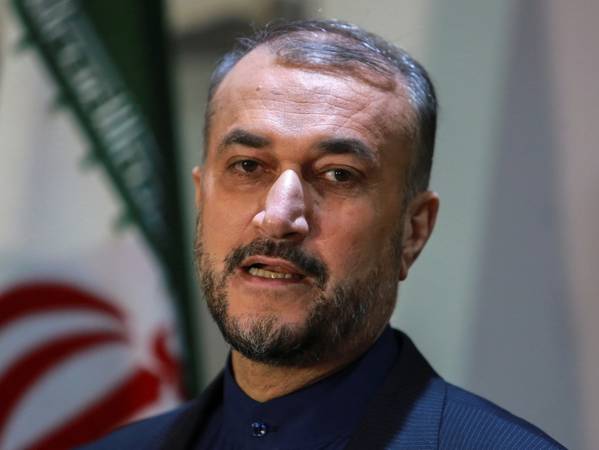Still expressing optimism over the Vienna nuclear talks on Thursday, the Iranian foreign minister has reiterated that Tehran would not surrender its "redlines".
At a meeting with the Lebanese Parliament Speaker Nabih Berri in Beirut Thursday evening, Hossein Amir-Abdollahian said Iran is serious about achieving a “good, lasting deal” in the negotiations.
He added that a prolongation of the process was not acceptable to Iran and that Iran would not cross its own red lines but did not elaborate on what Iran's redlines are, but reports in the past two weeks indicate this is related to Iran's demand that the US should remove the Revolutionary Guards (IRGC) from its list of Foreign Terrorist Organization (FTO).
“We are optimistic and at the same time serious about the outcome of the Vienna talks. In our view, the [possible] agreement should be such that the removal of [US] sanctions is done maximally,” he said at another meeting in Beirut with Lebanese Prime Minister Najib Makati.
Prospects of delisting the IRGC have raised many objections in the US and the tone in Washington is no longer as optimistic as before.
Austrian journalist Stephanie Liechtenstein in a tweet Thursday said her sources who ten days ago seemed rather confident that a deal could be struck to restore the JCPOA now "sound increasingly pessimistic." "This is yet again another extraordinary turn of events, especially if you think just how close they are," she said.
The Trump administration listed the IRGC as a terrorist organization as part of his ‘maximum pressure’ after he withdrew from the JCPOA in 2018.
Some pundits maintain that listing of the IRGC as a foreign terrorist organization is only symbolical because the title Specially Designated Global Terrorists (SDGT) was merely added to a host of other designations of the IRGC without introducing newer or more effective sanctions. The IRGC and all individuals and entities related to it, they argue, were already sanctioned under executive orders 13382, 13553, 13606, 13224 between 2007 and 2017 as well as CISADA and other legislations in connection with human rights, missile programs, and terrorist activities.
Russia's role in a restored JCPOA has also become a matter of contention and possibly an obstacle to a quicker conclusion of the talks.
It seems The Biden Administration has agreed with a Russian demand to be exempted from Ukraine sanctions in its nuclear cooperation with Iran, which besides facilitating the restoration of the JCPOA would involve lucrative deals to expand Tehran’s civilian reactor.
Biden Administration officials speak about the Russian role only in terms of its traditional mediation to take enriched uranium out of Iran, but what Moscow has demanded goes further than that
The Telegraph, quoting Western security sources, reported on Wednesday that Iran has made a secret deal with Russia to help it evade Western sanctions related to Ukraine, in exchange for Moscow’s help to conclude a nuclear deal with the West, which can free up tens of billions of dollars in frozen funds and trade opportunities for its beleaguered economy.
But there is opposition even from some Democrats. "I don’t think Russia is at the table in a legitimate or honest way. I think they are looking at ways to get around the sanctions," Democrat Senator Kirsten Gillibrand told Fox News Thursday. "I think we have to be very careful in not negotiating against ourselves, especially with what Russia is doing against Ukraine."
